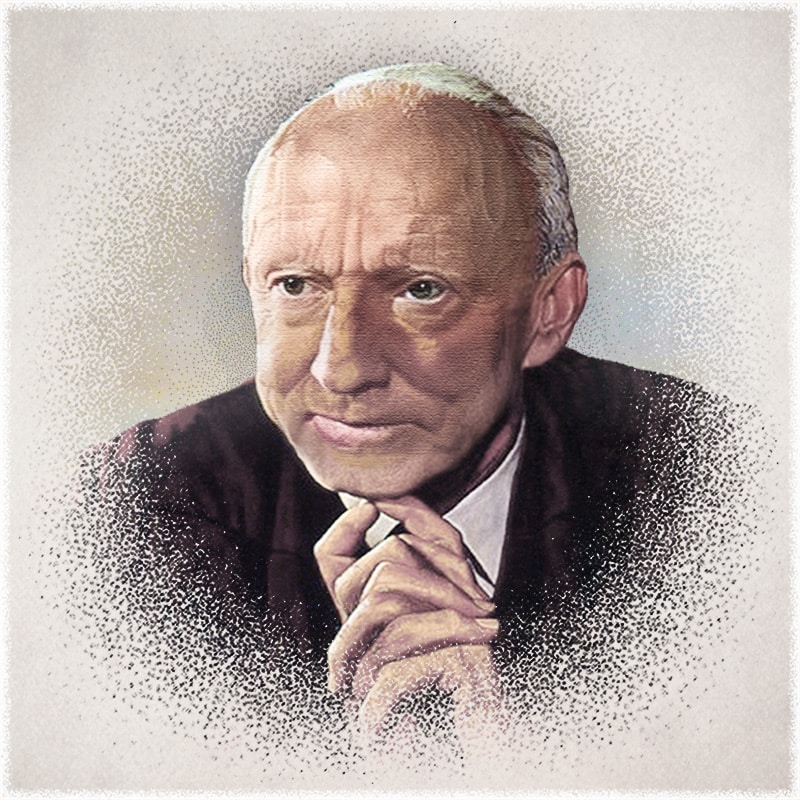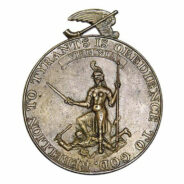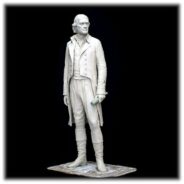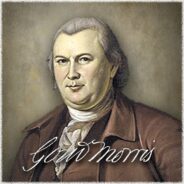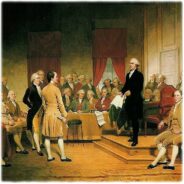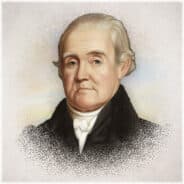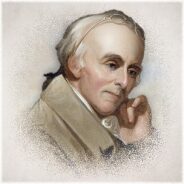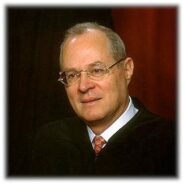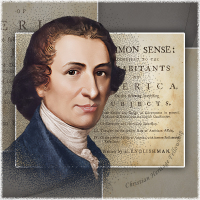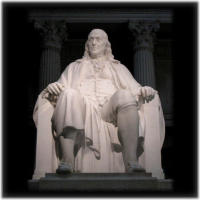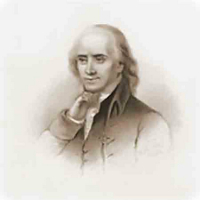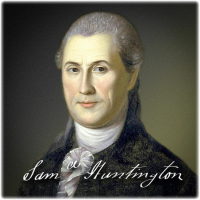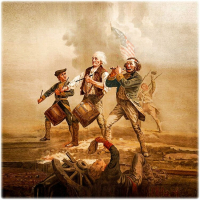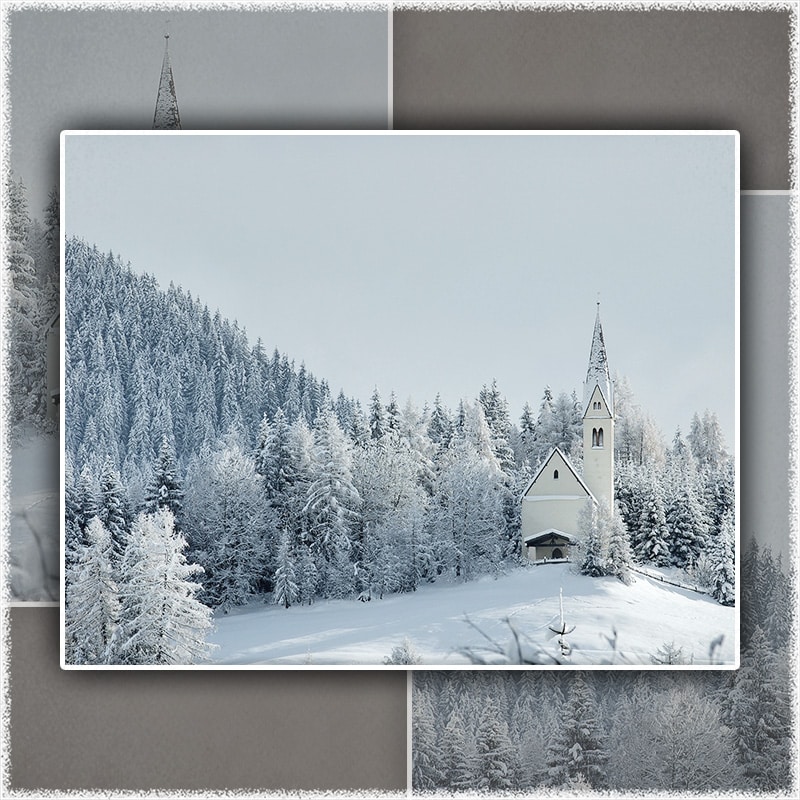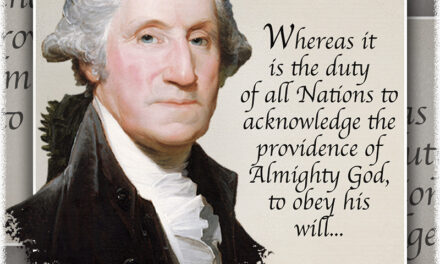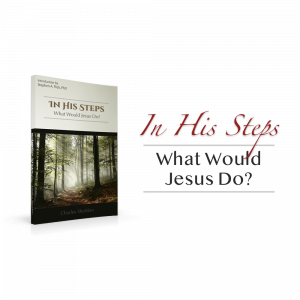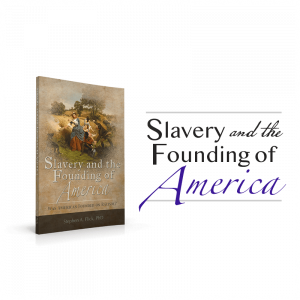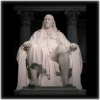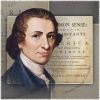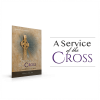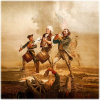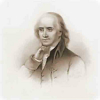Thomas Jefferson’s Wall of Separation Letter
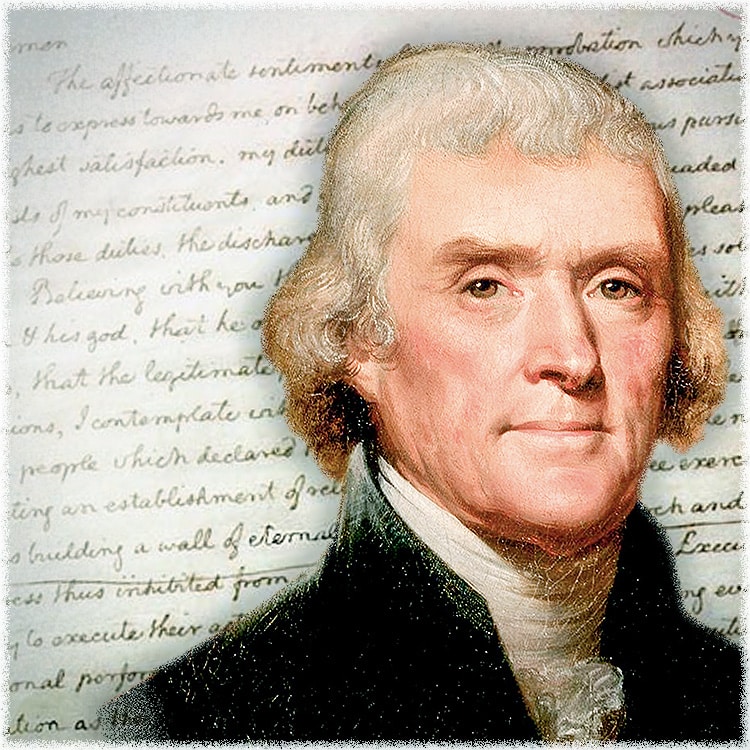
On January 1, 1802, Thomas Jefferson penned a letter that has been employed by secularists against America's historic legal foundation. Repeatedly members of the Supreme Court have relied upon secular interpretations of both the writings and personal example of Thomas Jefferson. Employing Jefferson against the previous historic rulings of the Supreme Courts and the Christian foundation of American law, the Supreme Court, since 1947, has relied upon skewed and misinterpreted excerpts taken from the writings of Thomas Jefferson. A significant consequence of the secularization of America's legal system is the systematic denial of constitutional rights of people of faith to freely and publicly express their faith. For decades, this growing tyranny has gone largely unchallenged by the Church in America and threatens to deepen in the absence of sustained historic Christian leadership.Wall of Separation Letter
Use of Jefferson Begins Judicial Activism
On February 10, 1947, the United States Supreme Court deviated from the mandates of the Constitution as verified by previous rulings of the Supreme Court. On this date, Justice Hugo Black, writing for the majority in the Supreme Court case Everson VS Board of Education, grossly deviated from the historical interpretation of the First Amendment when rendering his opinion. Black and his colleagues who sided with him took from the states a right they had enjoyed since the ratification of the Bill of Rights. In this opinion, Justice Black initiated an unconstitutional line of reasoning that has suppressed the truth of the First Amendment for more than six decades and has depended upon a grossly misconstrued interpretation of Thomas Jefferson:Wall of Separation Letter
Neither a state nor the Federal Government can, openly or secretly, participate in the affairs of any religious organizations or groups and vice versa. In the words of Jefferson, the clause against establishment of religion by law was intended to erect "a wall of separation between Church and State."[]
If Jefferson had intended his writings to be interpreted in this way, previous generations of judges would have been justified in doing so, but prior to Justice Black's ruling in 1947, no judge or court interpreted Jefferson or any of the Founding Fathers in this way. This fact alone stands as a profound indictment against Black and fellow liberal jurists who seek to remake American law!
See our article: Supreme Court Declares America “Christian”To correctly interpret Jefferson's "Wall of Separation Letter" of January 1, 1802, Jefferson's support of Christianity as an office holder at state and federal levels of government must first be understood.
Jefferson's Official State Support for Christianity
What is often deliberately neglected by secularists concerning Thomas Jefferson's philosophy of government is his public and civic support of the Christian religion. Numerous examples of his advocacy of Christianity at the state (Virginia) and federal levels could be presented, but the representative examples presented below should suffice.
In 1774, Jefferson introduced a measure in the Virginia legislature calling for a day of prayer and fasting in response to a British blockade of Boston to "implore the Divine interposition in behalf of an injured and oppressed people."
In 1776, being placed on a committee to draft the Declaration of Independence, Jefferson sought a dual declaration of independence, from Great Britain on the one hand and dependence upon God on the other.
Placed on a committee on July 4, 1776 to draft a seal for the new American government, Jefferson proposed the biblical imagery of "The children of Israel in the wilderness, led by a cloud by day, and a pillar of fire by night."
In 1779, Jefferson became governor of Virginia and introduced biblically oriented legislation: a Bill for Punishing Disturbers of Religious Worship and Sabbath Breakers; a Bill for Appointing Days of Public Fasting and Thanksgiving; a Bill Annulling Marriages Prohibited by the Levitical Law and Appointing the Mode of Solemnizing Lawful Marriage; and a Bill for Saving the Property of the Church Heretofore by Law Established.
In 1780, as governor he ordered that an official state medal be created with the motto, "Rebellion to Tyrants is Obedience to God."[]
A careful examination of his proposed legislation clearly demonstrates that Jefferson was not a man who separated his Christian convictions from civil government.
Jefferson's Official Federal Support for Christianity
In 1789, Thomas Jefferson began his career as a public official at the federal level when he assumed the office of secretary of state under President George Washington. From this office and subsequently to the highest executive office of the land—as president—Jefferson continued his advocacy of Christianity. The following summaries prove this fact and soundly deny the contemporary secularist the right to employ Jefferson in their radical discussion of "separation of Church and state."
As secretary of state, Jefferson oversaw the layout and construction of Washington, DC, including the federal buildings such as the White House and Capitol. Though incomplete, by 1795 the Capitol had progressed sufficiently to allow worship to be convened there, and under the leadership of Jefferson, it began and continued. A Boston newspaper announced the beginning of Christian worship there: "Public worship is now regularly administered at the Capitol, every Sunday morning at 11 o'clock, by the Reverend Mr. Ralph."
While serving as vice president to John Adams from 1797 to 1801, Jefferson presided over the US Senate when both bodies of Congress approved a plan providing for Christian church services to be held in the largest room of the Capitol building, in the Hall of the House of Representatives. Responsibility for conducting these services rested alternately upon the chaplain of the House and chaplain of the Senate.
While vice president and during his two terms as president, Jefferson faithfully attended Christian worship at the Capitol building, and when residing at the White House, he rode his horse the 1.6 miles to the Capitol "regardless of weather conditions." Jefferson provided an explanation to an enquiring friend as to why he was so faithful in his church attendance: "No nation has ever yet existed or been governed without religion—nor can be. The Christian religion is the best religion that has been given to man and I, as Chief Magistrate of this nation, am bound to give it the sanction of my example."[]
Under President Jefferson, Christian church services were also started at the War Department and the Treasury Department. Because of his influence, worshippers were free to choose between attending services at the Capitol, War Department, or the Treasury Department.
1801—He urged the commissioners of the District of Columbia to sell land for the construction of a Catholic church, urging "the advantages of every kind which it would promise."
1801—He penned a letter to Gouverneur Morris (signer of the Constitution) describing America as a Christian nation.
1802, 1803, and 1804—He signed federal acts setting aside government lands for missionary work and the propagation of the Gospel among the Indians.
1803—Jefferson directed the secretary of war to give federal funds to a religious school established for Cherokee Indians in Tennessee.
1803—He negotiated and signed a treaty with the Kaskaskia Indians that funded Christian missionaries and provided federal funds for the construction of a church.
1804—He assured a Christian school in the newly purchased Louisiana Territory that it would enjoy the full support of the federal government.
1806—He supported "An Act for Establishing the Government of the Armies" which "earnestly recommended to all officers and soldiers diligently to attend Divine service." He also commissioned that officers who "behaved indecently or irreverently at any place of Divine worship" were to be brought to a general court martial while non-commissioned officers or soldiers were to be fined.
1801-1809—He closed presidential documents with the appellation, "In the year of our Lord Christ."[]
Historic Interpretation of First Amendment
Thomas Jefferson is often regarded by secularists as the driving force behind the United States Constitution, though he was not in America during the writing of the Constitution or the Bill of Rights by the First Congress. For this reason, his influence upon the origin of each of these documents is almost nonexistent.[] The Constitution was written and ratified while Jefferson was minister to France (1785-1789), and the Bill of Rights was on its way to ratification by the states when he was returning home in September of 1789. Though absent during the writing of the Constitution and Bill of Rights, Jefferson's personal example and his writings demonstrate he was in full agreement with the First Amendment of the Bill of Rights and the two clauses which deny the federal government the right to reign over or restrain the states in matters of religion:
The federal government shall not reign over religious activity. The first clause, "Congress shall make no law respecting an establishment of religion," is known as the "Establishment Clause." This clause prohibited the federal government from establishing a national or federal church. As discussed by the First Congress when drafting the First Amendment, the federal government was not given any authority to establish one denomination over the others as the federal or national church.[]
The federal government shall not restrain religious activity. The second clause, "…or prohibiting the free exercise thereof," is known as the "Free Exercise Clause." This second clause prohibited the federal government (Congress, Supreme Court, etc.) from interfering with citizens' rights to publically express their religious convictions—which were overwhelmingly Christian. Likewise, it was a guarantee to the states that the federal government would not attempt to regulate religious matters of the states (i.e. prayer and Bible reading in public schools, religious displays, etc.).
Jefferson on the "Establishment Clause"
Jefferson was aware that, whenever possible, government infringed upon the right of the Christian Church to freely administer itself by attempting to seize control of the Church—a violation of the Establishment Clause. To prohibit the control of the church by the federal government, Jefferson wrote to his friend Noah Webster (on December 4, 1790) that "fences" must be maintained to protect the church:
It had become an universal and almost uncontroverted position in the several States that the purposes of society do not require a surrender of all our rights to our ordinary governors . . . and which experience has nevertheless proved they [the government] will be constantly encroaching on if submitted to them; that there are also certain fences which experience has proved peculiarly efficacious [effective] against wrong and rarely obstructive of right, which yet the governing powers have ever shown a disposition to weaken and remove. Of the first kind, for instance, is freedom of religion.[]
He was also well aware that a denomination might willingly surrender itself to the dictates of the government without any coercive force on the part of the government—which was also a violation of the Establishment Clause of the First Amendment. Like the framers of the First Amendment, Jefferson also resisted denominational suitors that were willing to allow their denominations to be established as the federal or national church. In a letter to Dr. Benjamin Rush (dated September 23, 1800), fellow signer of the Declaration of Independence, Jefferson noted this challenge:
[T]he clause of the Constitution which, while it secured the freedom of the press, covered also the freedom of religion, had given to the clergy a very favorite hope of obtaining an establishment of a particular form of Christianity through the United States; and as every sect believes its own form the true one, every one perhaps hoped for his own, but especially the Episcopalians and Congregationalists. The returning good sense of our country threatens abortion to their hopes and they believe that any portion of power confided to me will be exerted in opposition to their schemes. And they believe rightly.[]
That the First Congress, when composing the First Amendment, refused to allow the federal government (Congress) to establish a national or federal church is evident from the records of the deliberation of Congress.
See our article: The Truth about Separation of Church and StateJefferson on the "Free Exercise Clause"
On October 7, 1801, the Danbury Baptist Association sent a letter to Thomas Jefferson following his election to the presidency of that same year. In their letter, the Baptists congratulated Jefferson on his election and then proceeded to express their concern that as a "minor part of the State" that the religious liberties they enjoyed would be jeopardized if the federal government regarded itself as the dispenser of "religious privileges…as favors granted [by the government], and not as inalienable rights [given by God]" (see Appendix A below). The Baptists wished for assurance that the federal government would not regard itself as the granter of religious privileges, as some might interpret the First Amendment, but rather the recognizer of "inalienable rights" granted by God, and, therefore, the federal government would be incapable of restricting those divine rights. The Danbury Baptists were fearful that the First Amendment would in some way be interpreted as a right granted by the government—which would allow the government to reign over or restrain their God-given right of religious freedom.
President Jefferson responded to the concern of the Danbury Baptists on January 1, 1802, assuring them that as president he would observe the limitations imposed upon him as a secondary consequence of the limitations placed upon Congress by the First Amendment. It is evident from his response in his original draft that the "wall" he alluded to was erected by the First Amendment against any branch of the federal government restraining the religious rights of the states, denominations or individuals.
I contemplate with sovereign reverence that act of the whole American people which declared that their legislature should "make no law respecting an establishment of religion, or prohibiting the free exercise thereof;" thus building a wall of eternal separation between Church and State. Congress thus inhibited from acts respecting religion, and the Executive authorised (sic) only to execute their acts, I have refrained from prescribing even those occasional performances of devotion, practiced indeed by the Executive of another nation as the legal head of its church, but subject here, as religious exercises only to the voluntary regulations and discipline of each respective sect, confining myself therefore to the duties of my station, which are merely temporal, be assured that your religious rights shall never be infringed by any act of mine and that." (see Appendix B below).
Since 1947, federal courts have grossly misinterpreted Jefferson's letter to the Danbury Connecticut Baptist Association. Rather than attempting to repress public Christian expressions of faith, Jefferson was assuring the Baptists that the "wall" established by the First Amendment that restrained the federal government from dictating to the states in religious matters would remain firmly in place during his administration.
America deserves to know its true heritage.
Please contribute today!
Conclusion
Throughout both his state and federal careers, Thomas Jefferson did indeed advocate the Christian religion, without giving priority to any one denomination over the others. Supreme Court Justices William Brennan, Thurgood Marshall, and Anthony Kennedy have all embraced the erroneous view that because Jefferson refused to promote federal prayer and fasting proclamations to be observed by the states, as did his predecessors George Washington and John Adams, that this is a sure sign of Jefferson's public secularism.[] The truth of the matter is that Jefferson refrained from using his office as president in the federal government to impose any religious matters upon the states. Most of Jefferson's federal career, discussed above, was conducted after writing this letter to the Danbury Baptists, and demonstrates that Jefferson believed the federal government was not excluded from promoting the Christian faith—but it had no right to reign over or restrain the states in the matter of religion. Jefferson both believed and practiced liberty of the federal government to advocate the Christian faith as clearly indicated by his own example.
Since 1947, many of the courts of America have embraced a legal foundation never previously known to American jurisprudence. From the earliest legal foundations of America, Christianity exercised the moral foundation for the laws of the states and nation, and only in the last six decades have states been forbidden by secular federal courts to exercise their historic Constitutional rights. The example of Thomas Jefferson argues against secular federal courts that have no constitutional authority to prohibit prayer or Bible reading in public schools, nor are they—by the Constitution or example of Jefferson—permitted to remove Christian symbols from state or local properties. Rather, if Thomas Jefferson's example is to truly be followed, the federal government will become an advocate of Christianity, without favor to any particular denomination. This is the legacy of Jefferson!
Appendixes
Appendix A: Please click arrow to see more…
Click here to learn more
The complete letter from the Danbury Baptists Association to President Jefferson (October 7, 1801) following his election to the presidency is presented below:
The address of the Danbury Baptist Association in the State of Connecticut, assembled October 7, 1801.
To Thomas Jefferson, Esq., President of the United States of America
Sir,
Among the many millions in America and Europe who rejoice in your election to office, we embrace the first opportunity which we have enjoyed in our collective capacity, since your inauguration, to express our great satisfaction in your appointment to the Chief Magistracy in the Unite States. And though the mode of expression may be less courtly and pompous than what many others clothe their addresses with, we beg you, sir, to believe, that none is more sincere.
Our sentiments are uniformly on the side of religious liberty: that Religion is at all times and places a matter between God and individuals, that no man ought to suffer in name, person, or effects on account of his religious opinions, [and] that the legitimate power of civil government extends no further than to punish the man who works ill to his neighbor. But sir, our constitution of government is not specific. Our ancient charter, together with the laws made coincident therewith, were adapted as the basis of our government at the time of our revolution. And such has been our laws and usages, and such still are, [so] that Religion is considered as the first object of Legislation, and therefore what religious privileges we enjoy (as a minor part of the State) we enjoy as favors granted, and not as inalienable rights. And these favors we receive at the expense of such degrading acknowledgments, as are inconsistent with the rights of freemen. It is not to be wondered at therefore, if those who seek after power and gain, under the pretense of government and Religion, should reproach their fellow men, [or] should reproach their Chief Magistrate, as an enemy of religion, law, and good order, because he will not, dares not, assume the prerogative of Jehovah and make laws to govern the Kingdom of Christ.
Sir, we are sensible that the President of the United States is not the National Legislator and also sensible that the national government cannot destroy the laws of each State, but our hopes are strong that the sentiment of our beloved President, which have had such genial effect already, like the radiant beams of the sun, will shine and prevail through all these States—and all the world—until hierarchy and tyranny be destroyed from the earth. Sir, when we reflect on your past services, and see a glow of philanthropy and goodwill shining forth in a course of more than thirty years, we have reason to believe that America's God has raised you up to fill the Chair of State out of that goodwill which he bears to the millions which you preside over. May God strengthen you for the arduous task which providence and the voice of the people have called you—to sustain and support you and your Administration against all the predetermined opposition of those who wish to rise to wealth and importance on the poverty and subjection of the people.
And may the Lord preserve you safe from every evil and bring you at last to his Heavenly Kingdom through Jesus Christ our Glorious Mediator.
Signed in behalf of the Association,
Neh,h Dodge }
Eph'm Robbins } The Committee
Stephen S. Nelson }[]
Appendix B: Please click arrow to see more…
Click here to learn more
President Jefferson's letter to the Danbury Baptist Association of January 1, 1802 is provided below with its original orthography as provided by the Library of Congress:
To messers Nehemiah Dodge, Ephraim Robbins, and Stephen S. Nelson, a committee of the Danbury Baptist association in the state of Connecticut.
Gentlemen
The affectionate sentiments of esteem and approbation which you are so good as to express towards me, on behalf of the Danbury Baptist association, give me the highest satisfaction. my duties dictate a faithful and zealous pursuit of the interests of my constituents, and, in proportion as they are persuaded of my fidelity to those duties, the discharge of them becomes more and more pleasing.
Believing with you that religion is a matter which lies solely between man and his god, that he owes account to none other for his faith or his worship, that the legitimate powers of government reach actions only and not opinions, I contemplate with sovereign reverence that act of the whole American people which declared that their legislature should "make no law respecting an establishment of religion, or prohibiting the free exercise thereof;" thus building a wall of eternal separation between Church and State. Congress thus inhibited from acts respecting religion, and the Executive authorised only to execute their acts, I have refrained from prescribing even those occasional performances of devotion, practiced indeed by the Executive of another nation as the legal head of its church, but subject here, as religious exercises only to the voluntary regulations and discipline of each respective sect,
[Jefferson first wrote: "confining myself therefore to the duties of my station, which are merely temporal, be assured that your religious rights shall never be infringed by any act of mine and that." These lines he crossed out and then wrote: "concurring with"; having crossed out these two words, he wrote: "Adhering to this great act of national legislation in behalf of the rights of conscience"; next he crossed out these words and wrote: "Adhering to this expression of the supreme will of the nation in behalf of the rights of conscience I shall see with friendly dispositions the progress of those sentiments which tend to restore to man all his natural rights, convinced that he has no natural rights in opposition to his social duties."]
I reciprocate your kind prayers for the protection and blessing of the common father and creator of man, and tender you for yourselves and the Danbury Baptist [your religious] association assurances of my high respect and esteem.
Th Jefferson
Jan. 1. 1802.[]
[] "Everson v. Board of Education of the Township of Ewing," Legal Information Institute, Cornell University Law School (http://www.law.cornell.edu/supct/html/historics/USSC_CR_0330_0001_ZO.html, October 13, 2013).
[] David Barton has an outstanding discussion of Jefferson's advocacy of Christianity as a public official. This work refutes numerous "lies" from the Left concerning Jefferson. The Jefferson Lies: Exposing the Myths You've Always Believed About Thomas Jefferson (Nashville: Thomas Nelson, 2012), 130-32.
[] Rev.Ethan Allen, "Washington Parish, Washington City," Handwritten history in possession of the Library of Congress, quoted in James Hutson, Religion and the Founding of the American Republic (Washington, DC: Library of Congress, 1998), 96; quoted in Barton, Jefferson Lies, 134-35.
[] See David Barton's discussion and evidence for Jefferson's advocacy of Christianity from his federal offices in Jefferson Lies, 132-36.
[] David Barton discusses this fact in detail, negating the dependence of liberalism on Jefferson as a source of authority for Constitutional origins. See Jefferson Lies, 117f.
[] See the Journal of the First Session of the Senate of the United States of America Begun and Held at the City of New York, March 4, 1789, and in the Thirteenth Year of the Independence of the Said States (Washington: Gales and Seaton, 1820): 70, September 3, 1789. Read the Journal online: September 3, 1789, pages 69-70.
[] Thomas Jefferson, Writings of Thomas Jefferson, Albert Ellery Bergh, editor (Washington D. C.: The Thomas Jefferson Memorial Association, 1904), 8:112-113, to Noah Webster on December 4, 1790; quoted by David Barton, "The Separation of Church and State," WallBuilders (http://www.wallbuilders.com/libissuesarticles.asp?id=123#FN7, January 2, 2014).
[] Jefferson, Writings of Thomas Jefferson, 3:441, to Dr. Benjamin Rush on September 23, 1800; quoted by David Barton, "The Separation of Church and State," WallBuilders (http://www.wallbuilders.com/libissuesarticles.asp?id=123#FN7, January 2, 2014).
[] Barton, Jefferson Lies, 137.
[] "Letter of Oct. 7, 1801 from Danbury (CT) Baptist Assoc. to Thomas Jefferson," Thomas Jefferson Papers, Manuscript Division, Library of Congress, Wash. D.C.; quoted in "Letters Between the Danbury Baptists and Thomas Jefferson," WallBuilders (http://www.wallbuilders.com/libissuesarticles.asp?id=65, January 1, 2014).
[] "Jefferson's Letter to the Danbury Baptists," Library of Congress (http://www.loc.gov/loc/lcib/9806/danpost.html, January 1, 2014).

